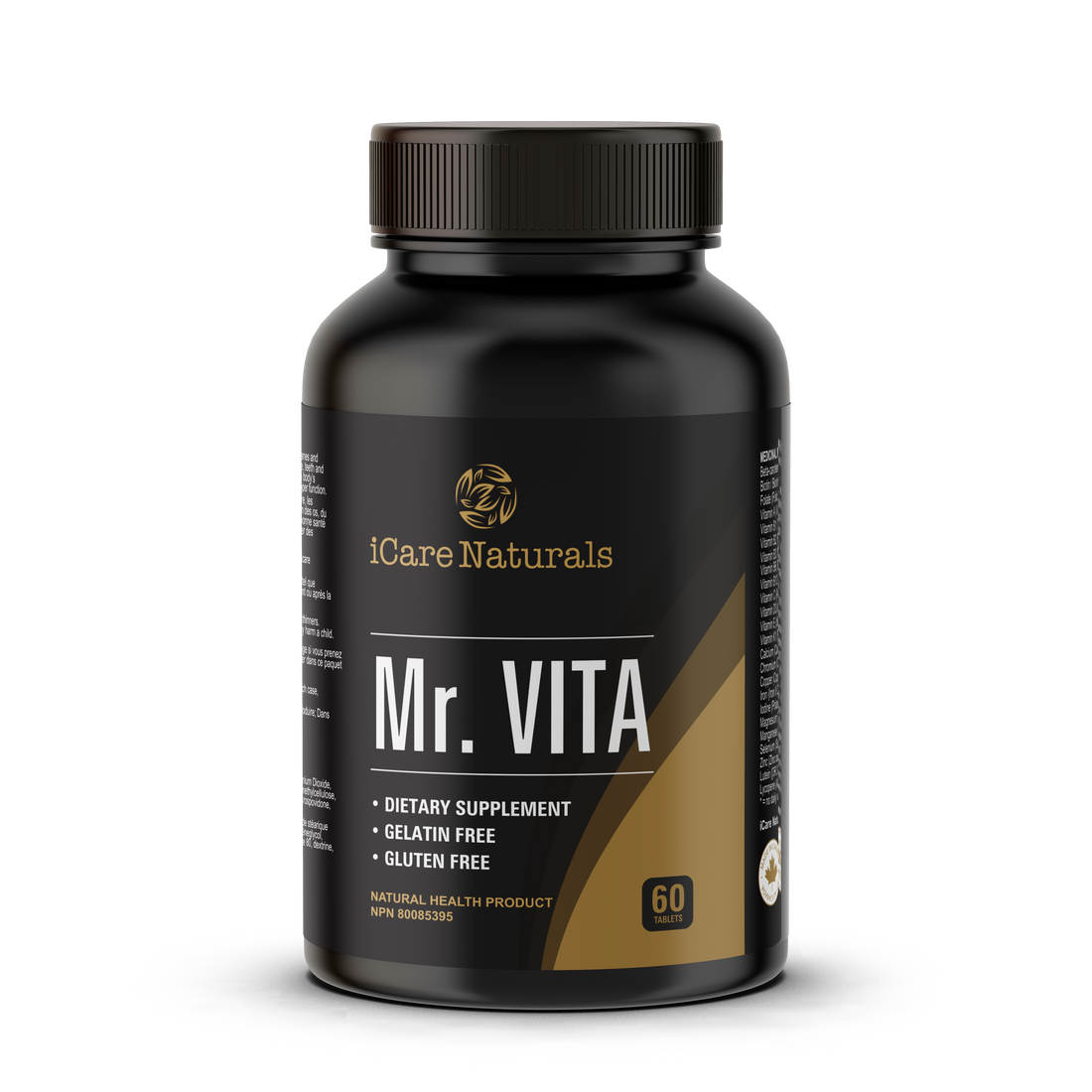Have you ever wondered whether you are taking your multivitamins at the wrong time? You might be surprised to know that many people do.
Some individuals only focus on taking multivitamins daily rather than considering when these supplements must be taken. You can not take iron supplements with calcium supplements and wait for miracles to happen. Take vitamin C supplements on an empty stomach for optimal iron absorption.
It was never about taking them daily, but what matters the most is to take them at the right time to maximise their effectiveness. This blog will empower you to make the most of your multivitamins.
So, first, let us understand multivitamins.
What are Multivitamins?
Multivitamins are a helpful mix of essential vitamins and minerals that keep your body functioning correctly. They can help fill any gaps in your diet, boost your immune system, and generally improve your health. But here's the question you should ask yourself: Are you getting the most out of these multivitamins?
Understanding Multivitamins and Their Types
Several types of multivitamins manufactured using organic compounds are vital for various bodily functions. These multivitamins are usually categorised by how they dissolve in water:
Water-soluble vitamins
Vitamins, including B and C, can be easily dissolved in water. When you take them, your body absorbs what it needs at that time, and any excess is usually flushed out through your urine. This means you have to generally take these multivitamins more regularly.
Fat-soluble vitamins
Vitamins A, D, E, and K are easier to dissolve in fat. They're absorbed in your small intestine with the help of dietary fats. However, water-soluble vitamins usually get stored in your body's liver and fatty tissues for later use. That means you do not need to take excessive amounts of these vitamins, which can build up to harmful levels.
Essential Minerals for the Body
Minerals are inorganic substances that help your body perform various internal processes. Some of these essential minerals that are found in multivitamins are as follows:
-
Calcium: Calcium supplements are vital for bone health, nerve function, and muscle contraction.
-
Iron: Iron supplements help carry oxygen to your blood. They also prevent anaemia, strengthen your immune system, and promote sleep. If you are expecting, these supplements will also help maintain fetal health.
-
Magnesium: These supplements help the body produce energy and improve the function of muscles and nerves.
-
Zinc: Zinc is one of the most important supplements for your health. It is essential for immune function, cell growth, and wound healing.
Various factors, including other minerals and certain foods, can impact the absorption of these minerals. For example, if you take calcium and iron supplements together, calcium can hinder iron absorption. Therefore, it is always recommended to take iron supplements separately or with vitamin C if needed.
Why Timing Matters for Multivitamins?
Timings matter the most when taking multivitamins. You can not take them whenever you want. The right timing can significantly affect how well your body absorbs and uses the nutrients.
Some vitamins are best absorbed with food, particularly those fat-soluble vitamins mentioned above, including vitamin A, D, E, and K. These vitamins need dietary fats to dissolve and be absorbed into your bloodstream. If you take them on an empty stomach, some may pass through your body without being properly utilised. However, vitamins like vitamin B can be absorbed at different times of the day with or without food.
The right timing can also help you avoid clashes between your multivitamin and other supplements or food. Some foods or drinks, like caffeine, can slow down the absorption of some vitamins and minerals.
Just like that, some medications may interact with the nutrients in your multivitamin. Either they reduce the effectiveness of medicines or impact how your body processes the vitamins. This is particularly important for things like blood thinners or thyroid medications.
By taking your multivitamin at the right time, you can ensure that your body is getting the full nutritional value and that you're not unintentionally minimising the effectiveness of any medications you might be taking.
The Best Time to Take Your Multivitamin
Many health professionals give the best advice, such as taking multivitamins with a meal after having a full stomach.
Why Should I Take Multivitamins with Food?
Take your multivitamin with any main meal, such as breakfast, lunch, or dinner. The most important thing is to take it with food. Otherwise, taking a multivitamin on an empty stomach can sometimes cause nausea or indigestion. Food helps your gut absorb the multivitamin more easily.
Supplements like Iron and Zinc can cause issues initially, so it is always better to read about their benefits and how to consume them more effectively at Icare Naturals.
Morning or Evening: Which is the Right Time?
Many individuals are confused about whether to take multivitamins in the morning or the evening. For some people, taking their multivitamin in the morning is the best option, especially as B vitamins are involved in energy metabolism. It's like giving your body a boost to start the day.
Many individuals prefer taking them in the evening, but it's worth noting that the energy-boosting effect of B vitamins might interfere with sleep.
When to Take Multivitamins for Specific Needs
There are some situations where the timing might need more consideration, especially during pregnancy. Gynaecologists recommend that pregnant women take prenatal vitamins, which are commonly recommended in the morning or during lunchtime.
However, following a specific timing is essential if you have any particular deficiency, like iron deficiency. Studies show that Iron is best absorbed on an empty stomach, but it can often cause stomach upset, so always take a vitamin C sachet or supplements with it. Moreover, calcium can obstruct iron absorption, so they should be taken at different times.
Older people may have different absorption rates or take wavy-dose medications that can interact with multivitamins, so it's always best to check with a doctor.
Conclusion
We recommend taking your multivitamins with a main meal if you want the best results. This will help with better absorption and avoid stomach upset. Whether you choose to take your supplements in the morning or evening is up to you, but be consistent!
However, if you're pregnant, have iron or zinc deficiencies, or are unsure when to add multivitamins to your routine, always check with your doctor. You can also check out iCare Naturals for quality multivitamins and get your hands on your required supplements. Take control of your health now because you matter!










